#ERPforManufacturing
Explore tagged Tumblr posts
Text

Level up your business with Magtec ERP
#erpsoftware#softwareerp#erp#erpsystem#erpsolutions#erpsoftwaresolutions#MagtecERP#erpsolution#erpimplementation#erpconsultant#erpintegration#erpsystems#erpservices#erpdevelopment#erpselection#erpformanufacturing#erpsales
3 notes
·
View notes
Text
How ERP Optimizes Production Planning & Inventory in Manufacturing
The manufacturing world is changing quickly, and efficiency and accuracy are thought to maintain competitiveness. One of the most effective ways to achieve both is by using an ERP (Enterprise Resource Planning) system. ERP is a software application for integrating a variety of business processes into a singular system-such as production planning and inventory management. The focus of this blog is how an ERP optimizes these functional aspects in manufacturing and what benefits can be derived from it.

Optimizing Production Planning with ERP
One of the major benefits of ERP systems is their ability to improve production planning. ERP helps manufacturers create more accurate and efficient production plans by providing real-time visibility into inventory levels, raw material availability, and production schedules. The system automatically generates work orders, allocates resources, and schedules machine usage based on current demand and available capacity, thereby minimizing downtime and production delays. ERP also enhances the forecasting process because it analyzes history and trends so that production does not go above customer demand. This results in fewer disruptions and better resource utilization.
Enhancing Inventory Management
Another area where ERP makes a strong impact is on effective inventory management. ERP provides real-time tracking of inventory with automated tracking so that manufacturers have the right amount of materials in stock at any given time. The system, therefore, minimizes the effects of stock outs and overstocking, two common causes of production disruption and increased costs. ERP solutions further optimize reordering processes by automatically generating purchase orders when stock levels reach predefined thresholds. This reduces the chances of having more inventory and their associated storage costs while improving the cash flow.
Benefits of ERP for Manufacturing
Increased Efficiency: The routine work such as inventory tracking and production scheduling is automated by the ERP systems, freeing up valuable time for employees to focus on strategic decision-making.
Cost Savings :The manufacturer can reduce wastes, reduce holding costs of inventory, and increase profits with effective inventories and optimized production planning.
Better Decision-making: Realtime data and cutting-edge analytics create an opportunity in the manufacturing of better decision making that enhances their overall business performances.
Scalability: ERP systems scale with the business, so that manufacturers can increase operations without compromising efficiency.
Improved Customer Satisfaction: With efficient operations and precise production schedules, manufacturers can respond to customer demand promptly, leading to higher satisfaction and repeat business.
Final Thoughts
However, with the integration of real-time data, better forecasting, and synchronization of scheduling and inventory control, ERP solutions can help manufacturers improve their productivity, reduce costs, and improve their bottom lines. With the evolving nature of the manufacturing industry, ERP remains a hall mark of operating efficiently and effectively in business. Therefore, investing in an ERP system would be a shrewd and strategic decision for manufacturers to head away from competition.
#ERPSystems#ProductionPlanning#InventoryManagement#ManufacturingEfficiency#ERPForManufacturing#SupplyChainOptimization#ManufacturingSolutions#BusinessAutomation#LeanManufacturing#ManufacturingTechnology#RealTimeData#SupplyChainManagement#ERPImplementation#InventoryOptimization#BusinessSoftware
0 notes
Text
ERP for Ethanol Manufacturing: Streamlining Operations for a Sustainable Future
The ethanol manufacturing industry has become an integral part of the global push toward renewable energy and sustainability. Ethanol producers face the pressure-from expanding operations, process optimization, supply chain complexities, and regulatory compliance as the need for cleaner fuel rises. In this system of operation, Enterprise Resource Planning (ERP) systems have emerged as the powerhouse for consolidating operations, improving turnaround, and supporting company-wide decision-making.
The ERP system unifies and automates a range of business processes-from production scheduling to inventory control, procurement, financial management, and compliance reporting-into one single overarching platform. An ERP system, therefore, gives ethanol manufacturers a better solution to industry challenges of operational inefficiency and sustainable growth.
Key Advantages of ERP for Ethanol Manufacturing
Optimized Production Planning and Scheduling Since the production of ethanol is a multi-stage process involving raw material procurement, fermentation, distillation, and blending, proper management of these stages is significant for establishing a clear, smooth, and continuum of the production process. This is facilitated by ERP to allow manufacturers to see, in real-time, the inventory, production schedules, and equipment availability thus ensuring that the raw materials are available in time, and production targets are achieved. It means, thereby, reduction of downtime, optimized resource planning, and enhanced throughput.
Real-Time Inventory Management Ethanol manufacturers depend on buying their raw materials-corn, sugarcane, or biomass-and require critical management to avert shortages or excess stock. An ERP system permits real-time tracking of inventory levels, automating reorder processes, and enabling an efficient flow of resources. By providing detailed insights into stock levels, expiration dates, and warehouse locations, the system helps optimize inventories, minimize wastage, and reduce operational costs.
Optimization of Supply Chain Ethanol manufacturing is a complex supply structure. There exist multiple suppliers for raw materials, transport logistics, finished product distribution, and many others. With ERP systems, suppliers can be managed from one central point of how they manage their supply commitments, vehicle dispatches, and external partner performances. Perfectly integrated operations provide manufacturers to take anticipatory steps against possible supply chain vulnerabilities, lead-time management, cost overrides possible conjunction to ensure timely delivery of ethanol products to their customers.
Regulatory Compliance and Reporting An ethanol plant faces a myriad of regulations that affect almost every operation: fuel quality standards, emission requirements, and tax incentives for biofuels. The ERP system allows manufacturers to stay compliant by creating regulatory reports automatically, tracking certifications, and documenting renewable feedstock use. This minimizes manual handling of compliance and ensures that manufacturers comply with industry standards thereby exempting them from fines and penalties.
Cost Control and Financial Management The costs of ethanol production include raw materials, energy consumption, labor, and maintenance. An ERP system integrates financial data across departments, provides manufacturers with real-time insight into production costs, profit margins, and cash inflow. This helps in more accurate cost forecasting, improved budgeting, and identification of areas where costs could be cut. The end result is an increase in financial control, improved profitability, and the ability to do informed investment planning.
Improved Analytics and Reporting A large amount of data is generated during the production; it is crucial to have the right analytics tools to derive meaningful information that supports decision-making. The ERP systems provide powerful reporting and business intelligence tools that enable ethanol manufacturers to track KPIs, like yield rates, energy consumption, production efficiency, and waste generation. These insights allow for data-driven decisions that will improve operational performance and sustainability objectives.
Maintenance and Asset Management A successful maintenance program for production equipment and machinery in ethanol manufacturing is necessary to avert unplanned downtime and reduce repair expenses. Equipped with asset management capabilities, an ERP lets manufacturers schedule periodic maintenance, follow equipment performance, and continue to monitor the remaining usable life of key assets. This way, well-maintained machines will help manufacturers avoid costly possible breakdowns and prolong equipment life.
Modules in ERP for Ethanol Manufacturing
The most potent ERP for the manufacturers of ethanol comprises the following modules:
Production Management Module This module takes care of the complete cycle of production from the time raw materials enter the estate until the final product leaves in order of product shipment. It incorporates functions relating to production planning, work order management, process control, and quality assurance. This module works as an assurance to the ethanol manufacturer that fermentation, distillation, and other processes involved are optimized for efficiency and quality.
Inventory and Supply Chain Management Module This module tracks inventory, helps with procurement, and optimizes the supply chain. It provides visibility regarding the inflow of raw materials (such as corn or sugarcane), by-products, and finished ethanol products. It also helps in vendor management, purchase orders, and delivery scheduling to keep production from stopping.
Quality Control and Compliance Ethanol manufacturing must ensure uniform product quality. The quality control module lets manufacturers monitor and maintain the quality of raw materials, in-process materials, and finished ethanol products. This module additionally guarantees that the manufacturing process is compliant with regulatory standards, including fuel specifications and environmental regulations.
Financial Management It integrates all financial processes like accounting, budgeting, expense tracking, and financial reporting. For ethanol manufacturers, it enables cost tracking based on the production line and raw material and also manages subsidies or tax incentives for biofuel production. This module enables financial governance and profit monitoring for cost control.
Customer Relationship Management (CRM) Module Helps the manufacturers of ethanol in managing customer orders and keeping track of sales while improving customer service. Also provides manufacturers with knowledge about customer likes and shopping behavior, helping them optimize production and delivery calendars based on demand. The CRM can also streamline the communication process with customers, which can enhance customer satisfaction and strengthen business relationships.
Future ERP Technologies in Ethanol Manufacturing
With the ethanol manufacturing industry facing increasing demand for biofuels and rising environmental concerns, ERP systems are expected to provide the necessary support for various companies to adapt and thrive. The future technologies for ERP such as artificial intelligence (AI), machine learning, and IoT would greatly enhance predictive analytics, automation, and process optimization.
The ethanol manufacturer can achieve greater sustainability, better production efficiencies, and regulatory compliance through an investment in advanced ERP. The growth of this industry means that gaining the leverage arise from real-time data and operational efficiency will be the backbone of success in the biofuel market.
#EthanolManufacturing#ERPforManufacturing#SustainableEnergy#RenewableEnergy#ProductionOptimization#SupplyChainManagement#CleanEnergy#EnergyEfficiency#EthanolProduction#ERPforBiofuels#ManufacturingAutomation#ComplianceManagement#FinancialManagement#GreenEnergySolutions
0 notes
Text
0 notes
Text
Why Manufacturing Industries Need ERP Systems for Material and Production Planning?
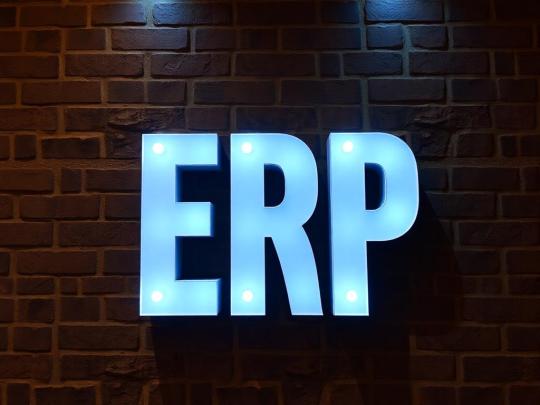
Enhancing Material and Production Planning with ERP Systems in Manufacturing
Manufacturing industries operate in a dynamic environment where efficiency and precision are paramount. To meet these demands, adopting a robust manufacturing ERP system is crucial for effective material and production planning.
An ERP system for manufacturing industry provides an integrated solution that connects all aspects of the business, from procurement and inventory management to production and distribution. This comprehensive approach ensures seamless operations and improved decision-making. Tools like ERPNext manufacturing are tailored to address the unique challenges of production-based industries, making them a top choice for manufacturers.
Manufacturing enterprise resource planning systems play a vital role in resource allocation, scheduling, and real-time tracking. By utilizing industrial ERP solutions, manufacturers gain visibility into their operations, enabling them to forecast demand accurately and avoid bottlenecks. These systems are particularly beneficial for optimizing supply chains and reducing material wastage.
Small businesses can also leverage the power of manufacturing software for small business to compete with larger players. Solutions such as business manufacturing software and manufacturing ERP software are designed to streamline operations and enhance productivity for small-scale manufacturers. The implementation of manufacturing enterprise resource planning software allows these businesses to automate routine tasks, manage resources effectively, and maintain high-quality production standards.
With a dedicated manufacturing resource planning system, manufacturers can ensure that raw materials are always available when needed, preventing costly production delays. The integration of production ERP software allows businesses to track each stage of the production process, ensuring timely delivery and quality assurance. These tools are essential for meeting customer expectations and staying ahead in the market.
Implementing ERP software for manufacturing industry also fosters compliance with industry regulations and minimizes operational risks. Whether for large enterprises or smaller ventures, a robust ERP software manufacturing industry solution provides the scalability and flexibility needed to adapt to changing market demands.
#ManufacturingERP#ERPSystem#ProductionPlanning#ERPNextManufacturing#IndustrialERP#ManufacturingSoftware#ERPForManufacturing#BusinessManufacturingSoftware#EnterpriseResourcePlanning#MaterialPlanning#SmallBusinessSolutions#ManufacturingEfficiency#ERPImplementation#SmartManufacturing#DigitalTransformation
0 notes
Text
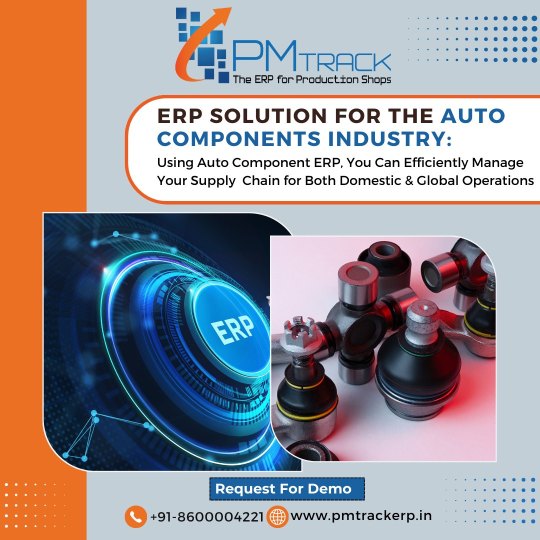
#For more info Visit:http://bit.ly/3OHlxtw#ERPforManufacturing#ERPforManufacturingIndustry#erpsoftware#erpsolution#erp#erpsystem#automobileindustryerp#erpautomobile#automotivemanufacturingerp#cloudbasedERPsolutions#pmtrackerp#manufacturingerpsoftware
0 notes
Text

Explore how Fabmont, a leading manufacturing unit specializing in steel structures and fabrication services, optimized their operations with the best #ERP for manufacturing. Learn about their journey with Matiyas implemented tailored #ERPNext manufacturing software.
Read complete blog here-https://www.matiyas.com/case-studies/transforming-manufacturing-operations-a-case-study-with-fabmont-engineering-india
#Successstory#matiyassolutions#erpformanufacturing#erpsoftwareformanufacturing#erpformanufacturingindustry#erpsystem#erpsoftware#BestERPSoftwareinIndia#ERPImplementers#BestERPSystems#ERPCompaniesinIndia#BestERPSoftware#BestERPforManufacturing#ERPNextServiceProvider#erpnextpartner#ERPNext#Frappe
0 notes
Text
#erpformanufacturing#besterpsoftwaresolution#cloudbasederp#digitaltransformation#besterpformanufacturingindustry#mciapps
0 notes
Text
Sap Business One Drives Innovation In The Manufacturing Industry.
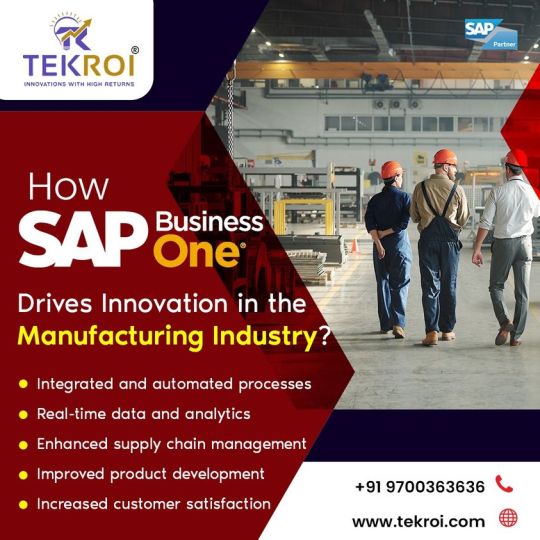
Revolutionizing Manufacturing Excellence: Explore How SAP B1 Drives Innovation in the Manufacturing Industry! Unleash Efficiency, Precision, and Growth. Elevate Your Operations with SAP Business One.
Discover how SAP B1 can revolutionize your industrial manufacturing operations. TEKROI offers tailored SAP solutions to streamline production processes, optimize inventory management, and drive overall efficiency. Unlock the potential of SAP B1 for your industrial manufacturing business!"
#TEKROI#SAP#erp#SAPBusinessOnepartner#BestSAPBusinessOnepartnerininida#SAPPartner#Softwarecompany#SAPSolutionsProvider#Bestsapbusinessonepartnerinhyderabad#sapbusinessoneservices#sapbusinessonepartnerinindia#digital#trending#BusinessGrowth#viral#digitalsolutions#SAPBusinessOneforManufacturingindustry#Manufacturing#SAPB1forManufacturing#DigitalTransformation#ManufacturingIndustry#ERPforManufacturing#EfficiencySolutions#Optimization#ResourceManagement#CostControl#SAPBusinessOne
1 note
·
View note
Text
Top ERP Software for the Manufacturing Industry
Cloudmonte Technologies specializes in delivering cutting-edge ERP software for the manufacturing industry. Our ERP solutions are designed to streamline and optimize various aspects of manufacturing processes, offering a comprehensive suite of tools to enhance efficiency and productivity.
Visit: https://cloudmonte.com/best-erp-software-for-manufacturing-industry/
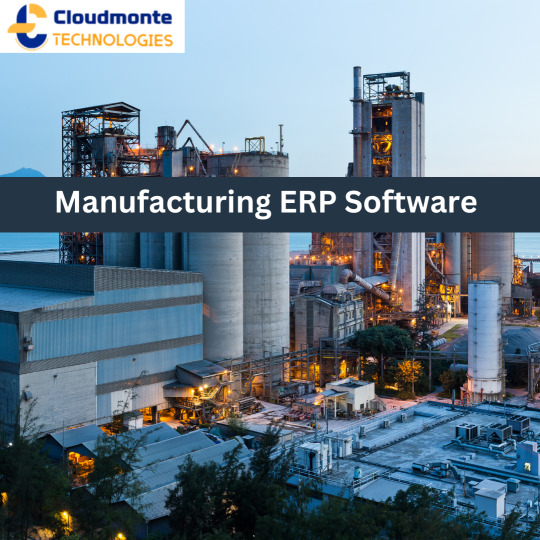
#manufacturingerp#erp#erpformanufacturing#erpsoftware#manufacturingerpsolutions#cloudmontetechnologies
0 notes
Text
ERP Software for the Manufacturing and Distribution Industry
Cloudmonte Technologies specializes in delivering cutting-edge ERP for the Manufacturing and Distribution industry. Our comprehensive solution is designed to streamline and optimize various business processes within the manufacturing and distribution landscape. With Cloudmonte's ERP software, businesses can seamlessly integrate and manage key functions such as production planning, inventory management, supply chain logistics, order processing, and financials. Our platform empowers organizations to enhance operational efficiency, reduce costs, and improve overall productivity
Visit Us: https://cloudmonte.com/manufacturing-industry/
#manufacturingerp#erpformanufacturing#erp#erpsoftwaremanufacturing#manufacturinganddistributionerp#cloudmonte#erpsystem
0 notes
Text

Manage your business in one location and empower your data to flow effortlessly with Magtec Business Solutions
#erpsoftware#softwareerp#erp#erpsystem#erpsolutions#erpsoftwaresolutions#MagtecERP#erpsolution#erpimplementation#erpconsultant#erpintegration#erpsystems#erpservices#erpdevelopment#erpselection#erpformanufacturing#erpsales#magtecbusinesssolutions
0 notes
Text
ERP Systems: A Key to Scaling Steel Production
Demand is rising in the steel manufacturing industry, with much pressure put on manufacturers to increase production, cut costs, and keep the quality of their products while having a competitive stand in the fast-changing market. Enterprise Resource Planning systems have thus been of great importance in helping the above firms implement this aim. The integration of business processes and creating real-time insight enable firms in the steel manufacturing industry to streamline their operations, improve on efficiencies, and effectively scale production.

Streamlined Operations The ERP systems will integrate various functions such as procurement, production, inventory, and sales under a single system. This will allow for streamlined operations with reduced time consumption on manual activities and increased interdepartmental coordination. Data shared in real time allows for decisions to be taken quickly, eliminating any delays and raising the efficiency in general.
Optimized Inventory and Supply Chain Management The use of raw materials largely depends on efficient inventory management. Scaling up of production would become impossible without ERP systems tracking inventory in real-time to determine when the inventory is needed to be ordered, thus preventing inventory shortages and excessive material waste in the form of stock outs.
Effective Production Planning An ERP system allows steel producers to plan schedules of production by taking into consideration labor, the availability of machinery, and supply of materials. This, in turn, uses resources efficiently and accomplishes the set goal of production. The production schedule can be amended according to actual data to ensure that downtime is at a minimum while overall output increases.
Quality Control and Compliance As production scales up, maintaining the quality of the product becomes difficult. ERP systems help steel manufacturers maintain high standards by automating quality checks and tracking compliance with industry regulations. The manufacturers can ensure that every product meets specifications using this software through real-time data on production parameters and quality metrics.
Conclusion For steel manufacturers, scaling up production efficiently and sustainably is of utmost importance. Implementing an ERP software will help them lay a foundation for growth through streamlined operations, optimized inventory, improved production planning, and consistent quality. As the steel industry continues to evolve, the ERP system will remain a critical tool for manufacturers striving to stay competitive in a rapidly changing market.
#ERPforManufacturing#SteelIndustrySolutions#SmartManufacturing#ERPSoftware#ProductionEfficiency#SupplyChainManagement#Industry40#ManufacturingTechnology#ProcessAutomation#QualityControl
0 notes
Text
ERP for Solar Panel Manufacturing: Revolutionizing Efficiency and Productivity
The renewable energy industry, especially solar power, has grown to such an extent over recent years. On this part, manufacturers of solar panels are encountering different challenges associated with production, inventory, supply chain optimization, and meeting regulatory satisfaction for demand of sustainable energy solutions. Therefore, those enterprises begin to look on the ERP system as means to help improve the manufacturing processes to an efficient competition.
Enterprise resources planning (ERP) is the term that defines holistic software solutions that consolidate and control within an organization itself all the primary business processes, from production, inventory, finance, procurement, and sales, to human resources. In solar panel manufacturing scenarios, an ERP system would automate processes effectively, provide real-time information, and promote collaboration across various departments.
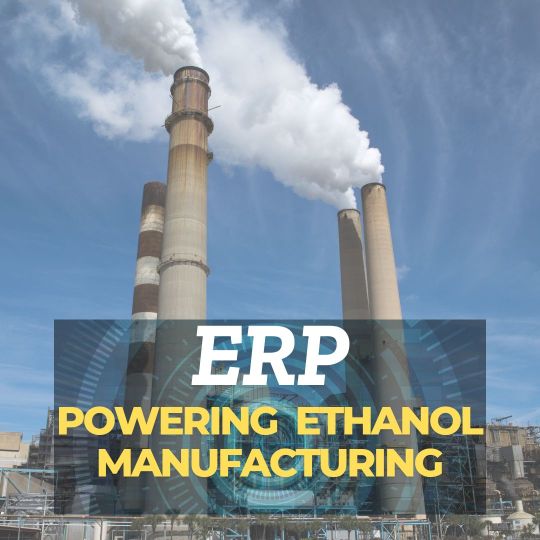
Benefits of Implementing ERP in Solar Panel Manufacturing
Optimized production planning Solar panel manufacturing involves a lot of processes, from obtaining raw material, such as silicon, to photovoltaic cell assembly. An ERP system allows a manufacturer to develop an optimized production schedule, while also ensuring efficient resource allocation, maximum uptime, and completion of production objectives. Integrated production planning allows manufacturers to follow each batch's status, thereby optimizing machine utilization and avoiding bottlenecks.
Real-time inventory management Generally, raw materials, components, and finished products must be managed in solar panel manufacturing. An ERP system provides manufacturers with transparent views on the current status of inventories in real-time. Automation of stock updates assists greatly in preventing stockoverkills and stockouts, which are both cost-effective-loss items. Most importantly, it manages the supply chain much better with such features as supplier performance monitoring and optimization of reordering points.
Better Quality Assurance Quality is critical in the production of solar panels, as the tiniest defects can negatively affect the manifestation and life span of these products. With the capability of ERP solutions, manufacturers would be able to institute quality checks by tracking raw materials, documenting tests, and complying with industry standards. The integrated reporting in ERP allows manufacturers to remedy quality issues with speed and great accuracy, therefore helping to ensure even more product consistency.
Streamlined Supply Chain Management The solar panel manufacturing supply chain is, for the most part, global and includes thousands of suppliers, transportation providers, and governing bodies. ERP solutions enable a centralized system of managing the holistic supply chain organization from the start of order processing to shipment tracking and supplier performance. The transparency helps manufacturers manage disruptions before they affect lead times and delays.
Cost Control and Financial Management As the cost of production has seen a considerable increase, solar panel manufacturers are pressured to manage their costs without compromising on quality. But through ERP systems, cost control becomes more manageable, more efficient, and potentially much more profitable. The implication here is that they can minimize operating losses through increased expenditure control, budgetary control, and production costing.
Compliance and Reporting The renewable energy industry is mostly governed by various regulatory bodies, environmental standards, and safety regimes. ERP systems help manufacturers comply with these regulations through the automation of reporting, tracking of certifications, and maintenance of associated documentation. The inbuilt compliance capabilities in ERP systems allow manufacturers to generate reports to meet industry standards, thereby minimizing the risk of penalties and non-compliance-related concerns.
Data-Driven Decision Making Solar panel manufacturers operate in a highly competitive and dynamic environment, where making data-driven decisions is crucial. ERP systems provide comprehensive analytics tools that allow manufacturers to gain insights into key performance indicators (KPIs), such as production efficiency, sales performance, customer satisfaction, and supply chain reliability. These insights empower decision-makers to take proactive steps toward continuous improvement and long-term growth.
ERP Modules in Solar Panel Manufacturing
Generally, an effective ERP comprises the following modules for solar panel manufacturing:
Manufacturing Module This module manages the production processes: work order, production scheduling, inventory management, and quality control so that all production operations are optimized for better efficiency and productivity.
Inventory and Supply Chain Management This module monitors inventory levels, raw material orders, vendor management-all to help optimize inventory turnover and ensure that materials are available for production.
Sales and Order Management This module supports customer order input, demand forecasting, and shipment tracking so that customers will know when to expect their orders and receive quality products.
Financial Management This module brings together all financial accounting: budgeting, financial reporting, cost-tracking, and profit analysis. It lets the manufacturers keep financial control and make informed decisions regarding investments.
Customer Relationship Management CRM provides manufacturers with the tools to track customer interactions, manage sales leads, and enhance customer service. The role it plays is crucial in retaining a good customer relationship, enhancing sales performance, and managing after-sales service.
HR management It is critical in solar panel manufacturing employing a skilled workforce. With an ERP, HR will be able to maintain employee data, manage payroll, track shifts worked, and optimize workforce deployment for production.
Maintenance and Asset Management Solar panel manufacturing involves specialized machinery and equipment. With the help of an ERP, they can keep track of maintenance schedules and avoid machine downtime while ensuring that all their assets work at peak efficiency.
The Future of Solar Panel Manufacturing with ERP Systems
ERP systems are revolutionizing the solar panel manufacturing industry by allowing manufacturers to handle production, supply chains, product quality, and meeting regulatory requirements with the aid of these tools. It would provide solar panel manufacturers with the right tools to improve operational efficiency, cut costs, raise customer satisfaction, and push for overall business growth.
As the renewable energy market continues to grow, the adoption of ERP systems by solar panel manufacturers will become increasingly important to remain competitive, meeting demands for solar energy, and contributing to a more sustainable future.
#SolarPanelManufacturing#ERPforManufacturing#RenewableEnergyTech#ManufacturingAutomation#SolarEnergy#SmartManufacturing#SupplyChainOptimization#GreenEnergySolutions#ProductionEfficiency#SustainableManufacturing#SolarPowerInnovation#ERPforRenewableEnergy#EnergyManagement#SolarIndustryTechnology
0 notes
Text
0 notes
Text
ERP Software for Manufacturing
Manufacturing stands as one of the most intricate and interdependent industries, where precision, efficiency, and quality control are paramount. In the year 2023, the role of Enterprise Resource Planning (ERP) systems in manufacturing remains pivotal. These systems continue to be indispensable tools, aiding manufacturers in optimizing their operations, enhancing efficiency, and upholding rigorous quality standards.
This comprehensive article takes a deep dive into the world of ERP software solutions designed specifically for the manufacturing sector. It provides valuable insights into the top-tier tools available to streamline manufacturing processes.
The Role of ERP in Modern Manufacturing
The introduction section sets the stage by explaining the pivotal role of ERP systems in modern manufacturing. It highlights how these systems serve as the backbone of manufacturing operations, ensuring seamless coordination and efficiency across various departments. The section also emphasizes the critical importance of implementing ERP software in manufacturing for sustaining competitiveness and operational excellence.
Benefits of Implementing ERP Software in Manufacturing
This section elaborates on the tangible benefits that manufacturers can accrue by adopting ERP systems. It delves into areas such as improved production planning, optimized inventory management, and rigorous quality control. These benefits serve as a compelling rationale for manufacturers to explore ERP solutions for enhancing their operations.
Key Features to Consider
In manufacturing, precision is everything. This section provides a meticulous examination of the key features within ERP systems that are essential for effective manufacturing operations. It identifies and elucidates features such as production planning, inventory management, quality control, and more, ensuring manufacturers have a comprehensive understanding of what to look for in an ERP solution.
Top ERP Software Solutions for Manufacturing in 2023
Now, let's dive into an in-depth exploration of the top ERP software solutions tailor-made for the manufacturing industry in 2023. These ERP systems have been carefully selected based on their ability to address the unique needs and challenges faced by manufacturers. Below, you'll find a comprehensive overview of each featured ERP solution:
SAP S/4HANA Manufacturing: Renowned for its scalability and comprehensive manufacturing functionalities, SAP S/4HANA Manufacturing is a powerhouse ERP system. It offers manufacturers the tools they need to manage complex production processes, optimize resource allocation, and ensure the highest levels of quality control. Its robust features make it suitable for both large and growing manufacturing businesses.
Microsoft Dynamics 365 Supply Chain Management: Seamlessly integrating with Microsoft's ecosystem, Microsoft Dynamics 365 Supply Chain Management streamlines manufacturing operations within a familiar environment. This ERP solution enhances data sharing, simplifies collaboration, and improves overall productivity. Manufacturers already utilizing Microsoft tools will find this integration particularly advantageous.
Infor CloudSuite Industrial (SyteLine): Infor CloudSuite Industrial (formerly known as SyteLine) is renowned for its industry-specific capabilities and adaptability. It offers manufacturers a tailored approach to ERP, addressing their unique challenges and needs. Whether it's managing complex supply chains or ensuring efficient production scheduling, Infor CloudSuite Industrial has the expertise to excel in the manufacturing sector.
Plex Systems: Specializing in manufacturing ERP solutions, Plex Systems is dedicated to optimizing production processes. It provides manufacturers with a comprehensive suite of tools for production planning, inventory management, and quality control. Plex Systems' expertise in manufacturing ensures that it caters specifically to the needs of this industry, making it a powerful choice for manufacturers aiming to boost efficiency and quality.
Epicor ERP: Epicor ERP offers industry-specific solutions for manufacturing and distribution industries. Its extensive feature set covers everything from inventory management to financials, making it a versatile choice for manufacturers looking to address their unique challenges. Epicor ERP is known for its ability to adapt to the evolving needs of manufacturers, ensuring long-term relevance.
Odoo: Odoo is a versatile, open-source platform that provides manufacturers with modular functionality. This flexibility allows manufacturers to customize the system to their specific requirements. Odoo's modular approach empowers manufacturers to select and integrate only the modules they need, ensuring a tailored ERP solution.
ERPNext: ERPNext is an open-source ERP system designed with manufacturing in mind. It offers features for production planning, inventory management, and quality control. Its user-friendly interface and cost-effective nature make it a compelling choice for small and medium-sized manufacturers.
Each of these ERP systems brings a unique set of features and strengths to the manufacturing landscape. As we delve deeper into the article, we'll provide detailed comparisons, enabling you to make an informed decision based on your manufacturing business's specific needs and objectives.
To provide tangible evidence of the impact of these ERP solutions, this section includes real-world success stories and case studies. These narratives showcase how actual manufacturers achieved operational excellence and efficiency through the implementation of ERP systems. Real-life examples serve as powerful testimonies to the transformative potential of ERP in manufacturing.
Strategies for Implementation
Selecting the right ERP system is just the beginning; effective implementation is equally vital. This section offers a roadmap of best practices for successfully implementing and integrating ERP systems into manufacturing processes. It covers critical aspects such as data migration, user training, and change management strategies.
Overcoming Challenges
The path to ERP implementation is not without challenges, particularly within the manufacturing sector. This section identifies common hurdles faced during implementation and provides strategies and solutions for overcoming them. It addresses challenges such as data security, process disruption, and integration complexities specific to manufacturing.
Conclusion
In the concluding section, the article revisits the key takeaways and underscores the critical importance of selecting the right ERP system for manufacturing in 2023. It reinforces the notion that this decision isn't just about software; it's a strategic move that can redefine how manufacturers operate and compete in an ever-evolving industry landscape.
By the conclusion of this comprehensive guide, readers gain a profound understanding of the top ERP solutions available for the manufacturing industry. They are empowered to make well-informed decisions that can elevate their manufacturing processes and enhance their competitiveness in 2023 and beyond.
#erpsystemformanufacturing#erpformanufacturing#manufacturingerpsystem#besterpformanufacturing#erpforsmallmanufacturingbusiness#erpformanufacturingcompany#erpforcustommanufacturing#manufacturingerpsoftware#erpsystemsforsmallmanufacturers#bestmanufacturingerpsoftware#erpmanufacturing#erpformanufacturingindustry#manufacturingerp#manufacturingindustries#manufacturingindustry#opensourcemrpsoftware#besterpsoftwareformanufacturing#benefitsoferpformanufacturingindustry#manufacturingerpmodule
1 note
·
View note